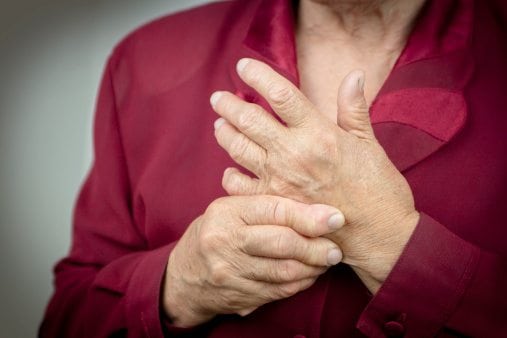<< Back
Degenerative Joint Diseases: The Basics

November 03, 2017
Degenerative joint diseases (DJDs) are chronic conditions often resulting in pain and the loss of an active lifestyle and quality of life. There are different types of DJD including:
- Osteoarthritis (OA), a condition in which cartilage wears down over time
- Post-traumatic arthritis, which results from prior trauma, such as a fracture
- Rheumatoid arthritis (RA), an inflammatory arthritis of the joints
- Avascular necrosis (AVN), a condition often seen in the hip, where the femoral head has lost a healthy supply of blood flow causing the bone to die and become misshapen.
The risk of developing symptomatic degenerative joint disease is influenced by multiple factors such as age, gender, weight, and other medical conditions that affect the shape and stability of your joints. Other factors can include:
- A previous injury, such as a fracture or dislocation
- Repetitive strain on the knee or hip joint
- Improper joint alignment
Treatment for DJD starts with a good diagnosis – which you can get by visiting one of the top-notch clinicians at the Connecticut Orthopaedic Institute at MidState Medical Center. Learn more here, or by calling 1.833.CTORTHO (1.833.286.7846).